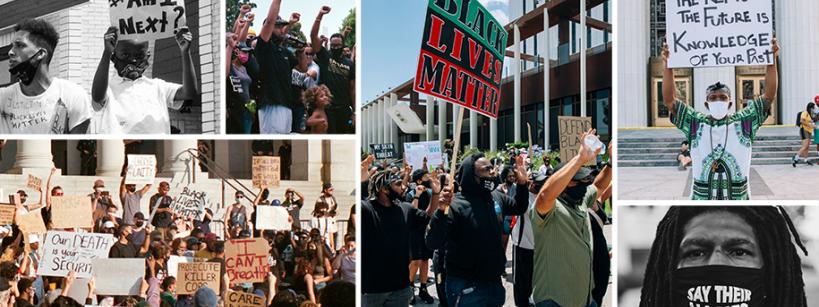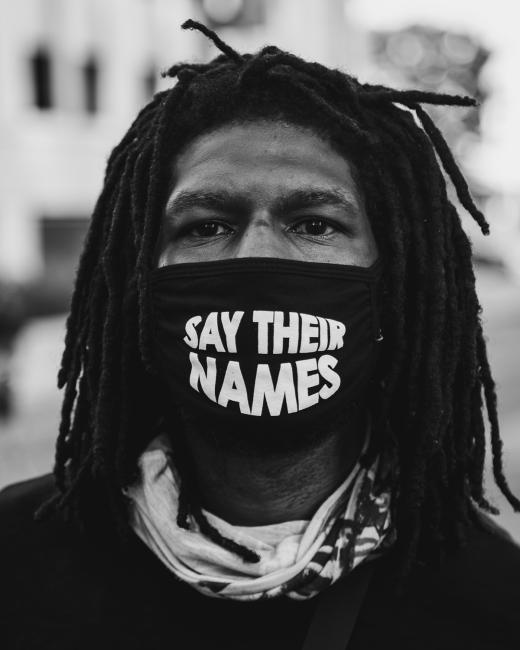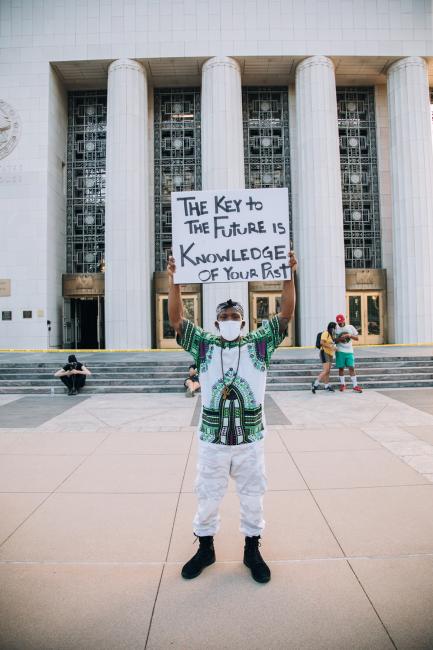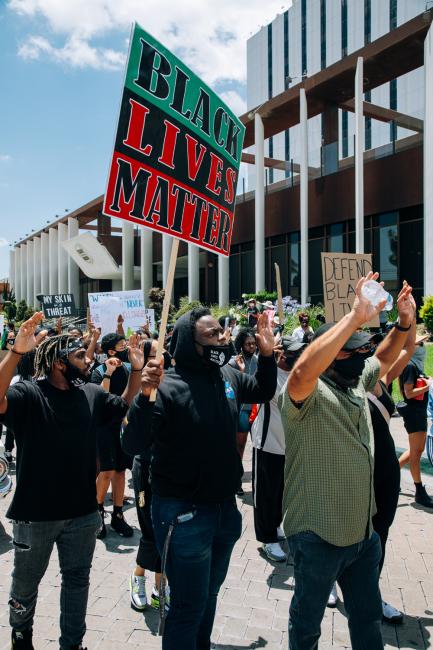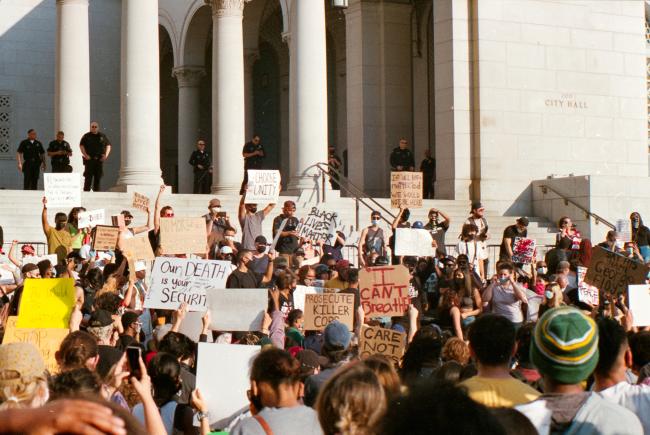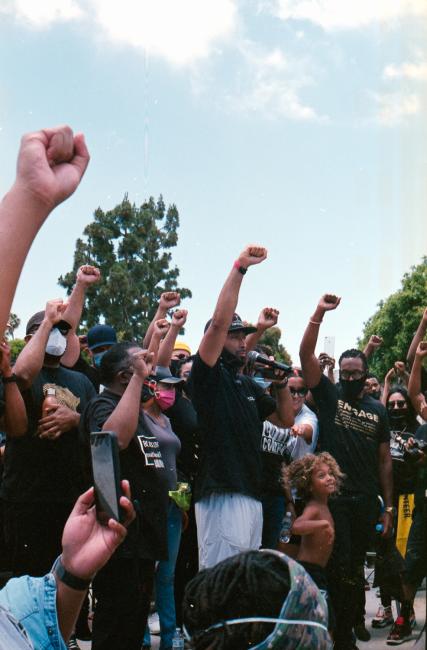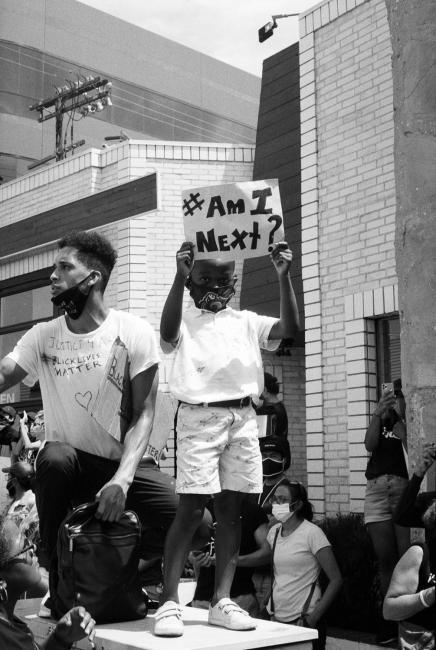Images from the Los Angeles Black Lives Matter protests following the murders of George Floyd, Breonna Taylor, Tony McDade, and Ahmaud Arbery. Images taken by Rob Liggins in Hollywood, CA., Compton, CA., and Downtown Los Angeles, CA. in May/June 2020.
By: Tyree Boyd-Pates, Assoc. Curator of Western History
Several months ago, the Autry launched our Collecting Community History Initiative (CCHI): The West During COVID-19 as a response to the growing desire to collect the diverse stories and objects that pertain to the American West during this epidemic. However, as quarantine and shelter-in-place orders have been enacted across the nation to mitigate the spread of the virus, we've also begun to see how the epidemic has laid bare systemic inequalities for African Americans—causing major unrest and response—medically and civically.
Primarily, a vital issue of national discourse has been accessing quality healthcare and how the virus itself impacts those with pre-existing medical conditions. Given inaccessibility to quality in America's urban centers, African Americans have seen a significant share of the fatalities caused by the virus. In fact, APM Research Lab estimates that, as of May 27, the overall death rate from COVID-19 is 2.4 times higher for African Americans than it is for white Americans.
As COVID-19 has heavily impacted African Americans, the pandemic has also laid bare how racial inequality affects this community. Particularly, how African Americans—despite shelter-in-place orders—still disproportionally face racial discrimination, bias, racial profiling, and a leading cause of deaths for young Black men is via encounters with law enforcement throughout the country.
Due to these inequities, viral videos and accounts of Black Americans' deaths extrajudicially have dominated national headlines. The recent deaths of Ahmaud Arbery (25), Breonna Taylor (26), and Tony McDade (38) have caused segments of the country great pain and angst. However, the crescendo was the viral video of the death of George Floyd (46) by law-enforcement, ultimately leading to national protests and uprisings over 12 days.
